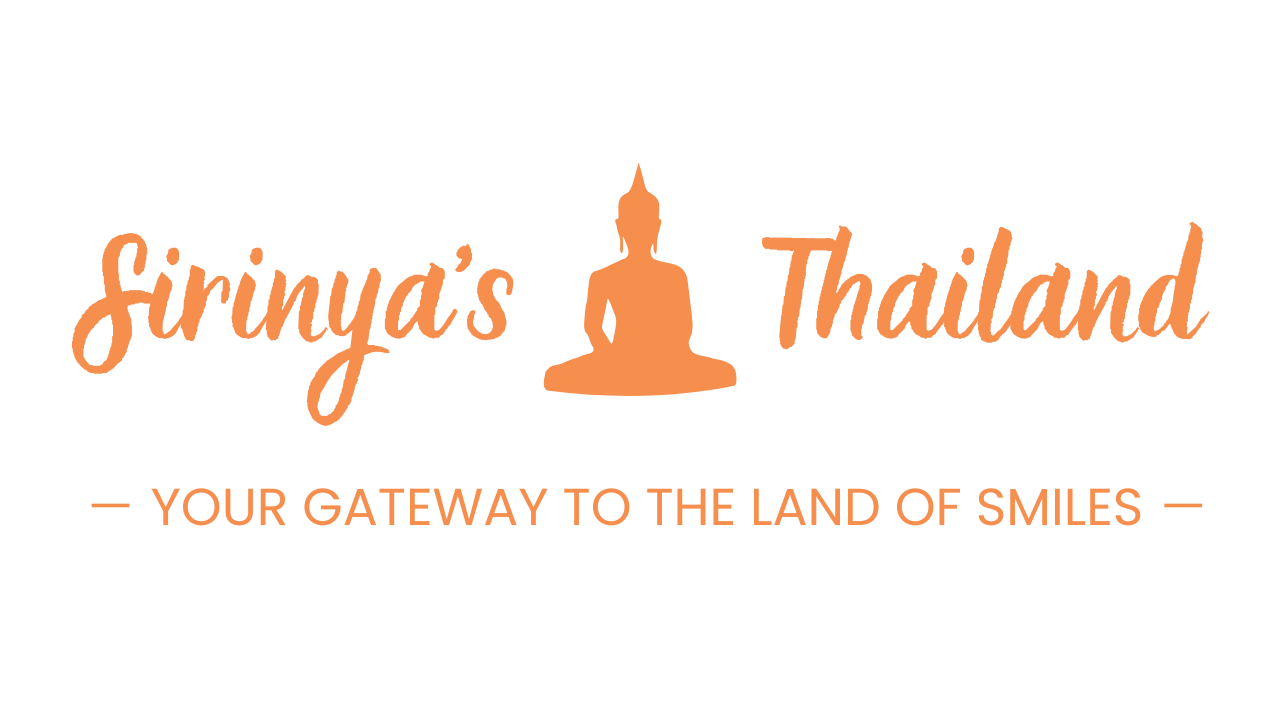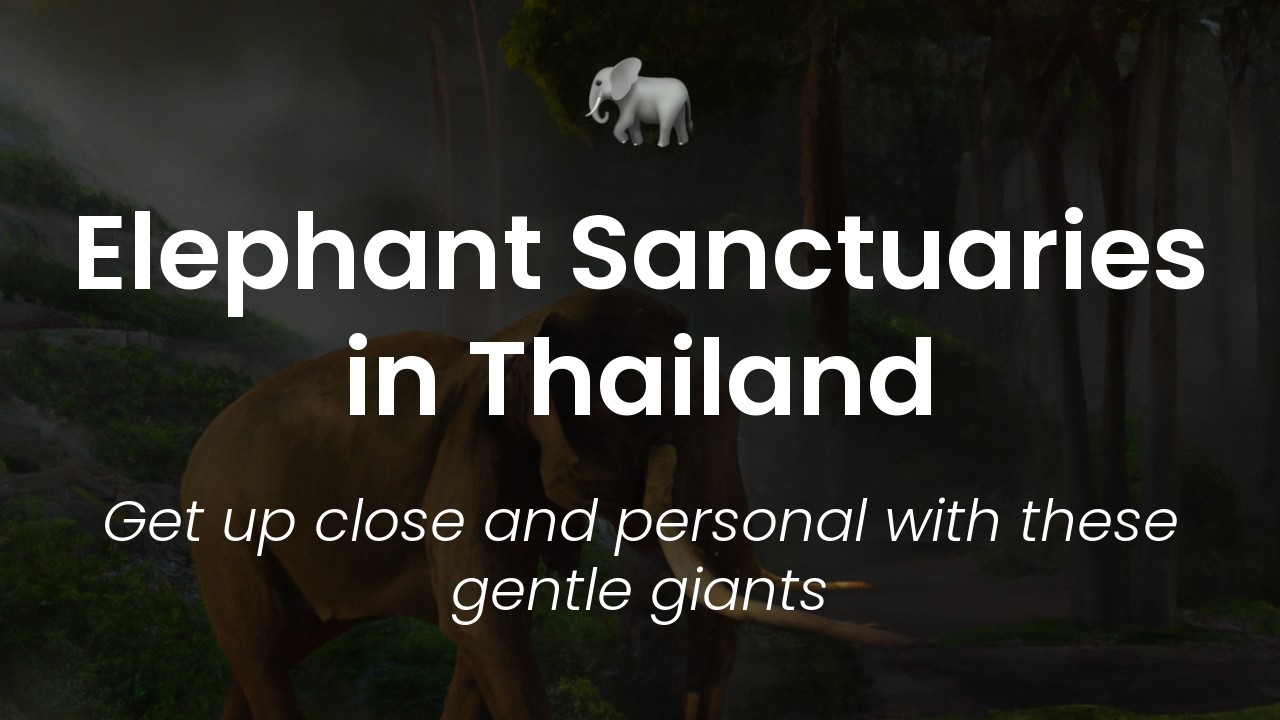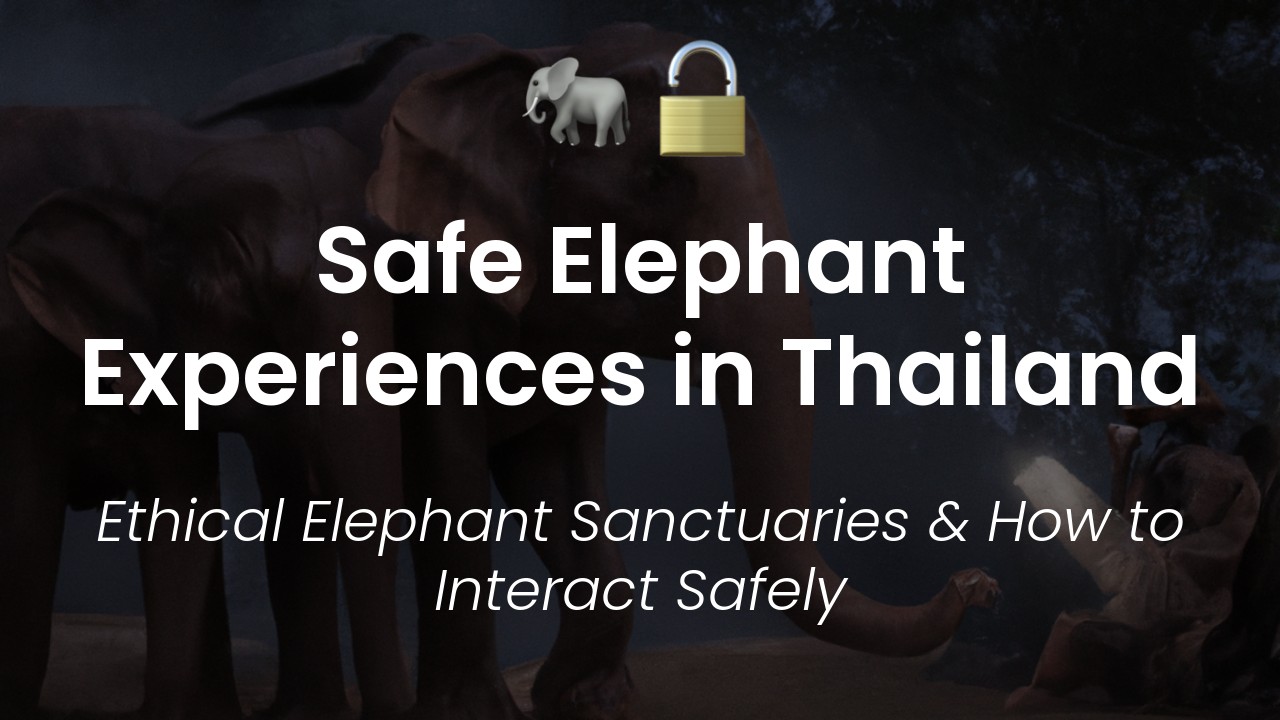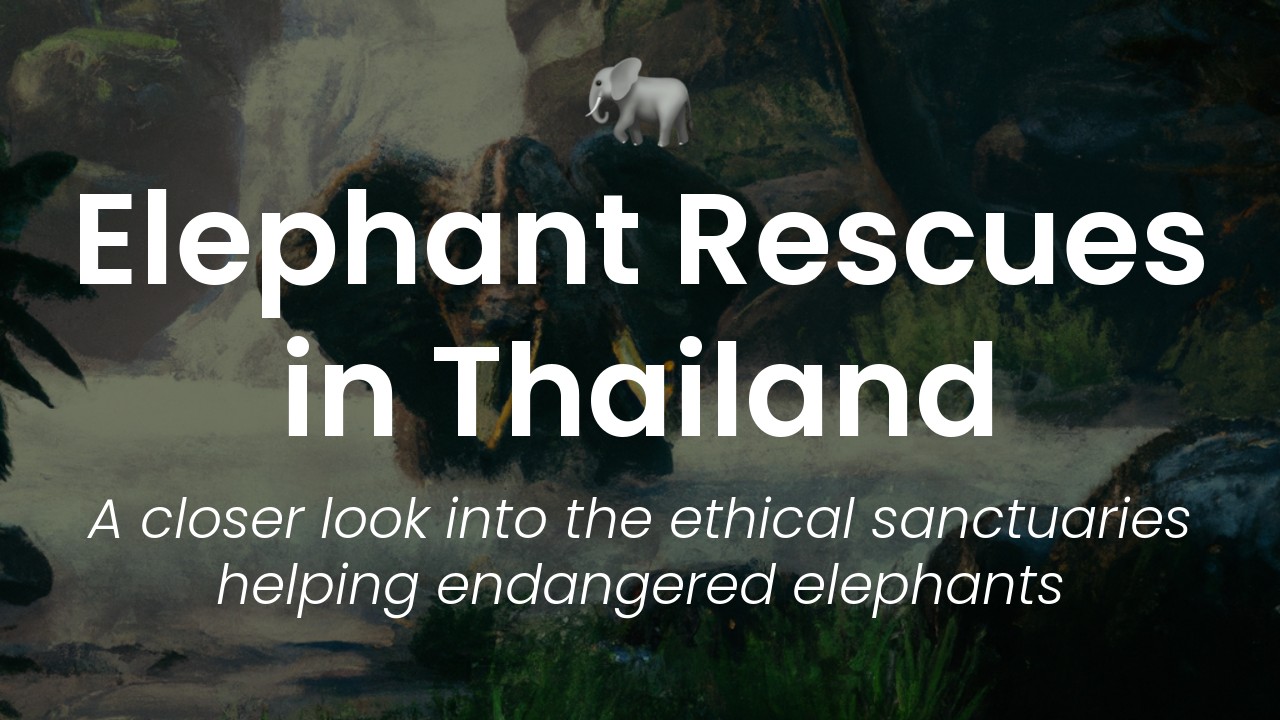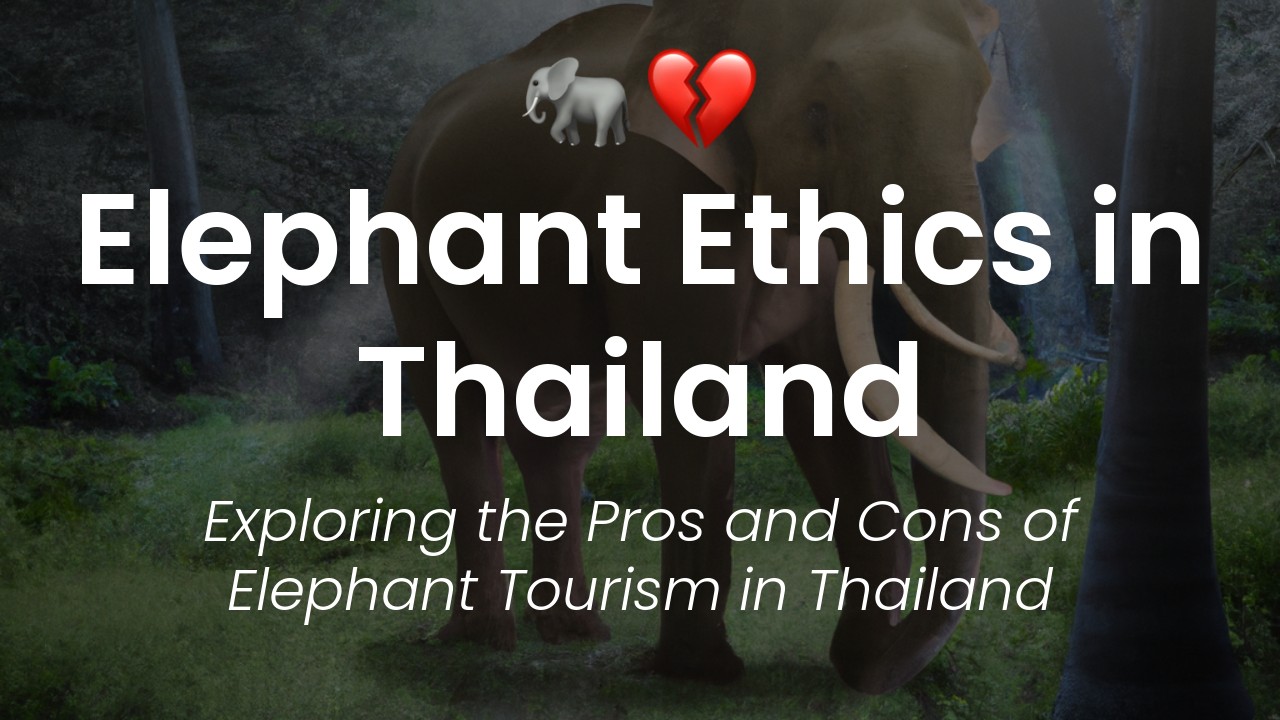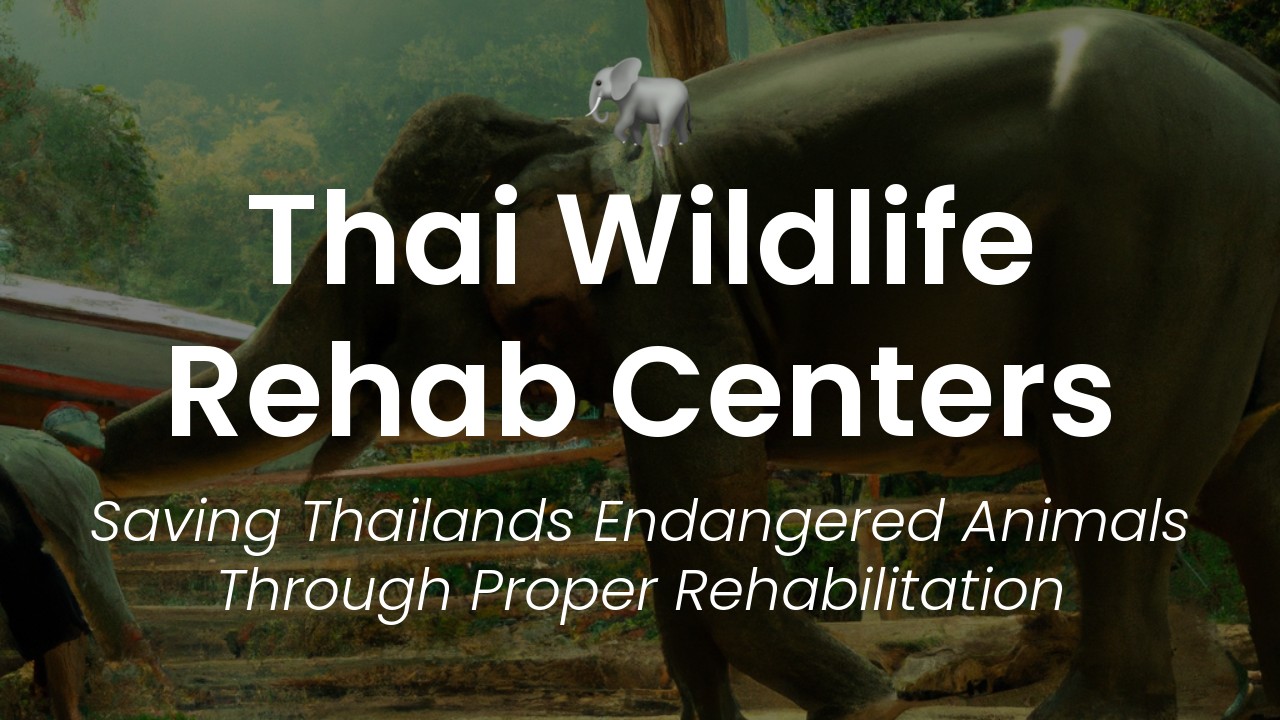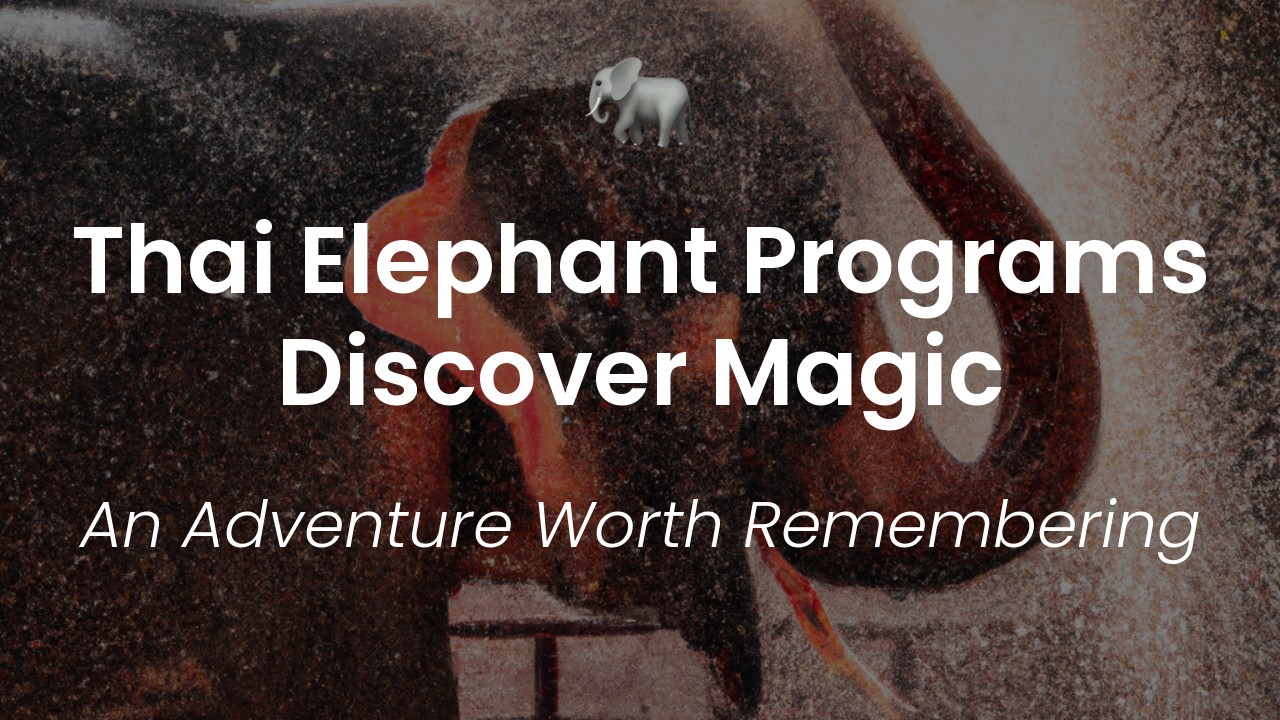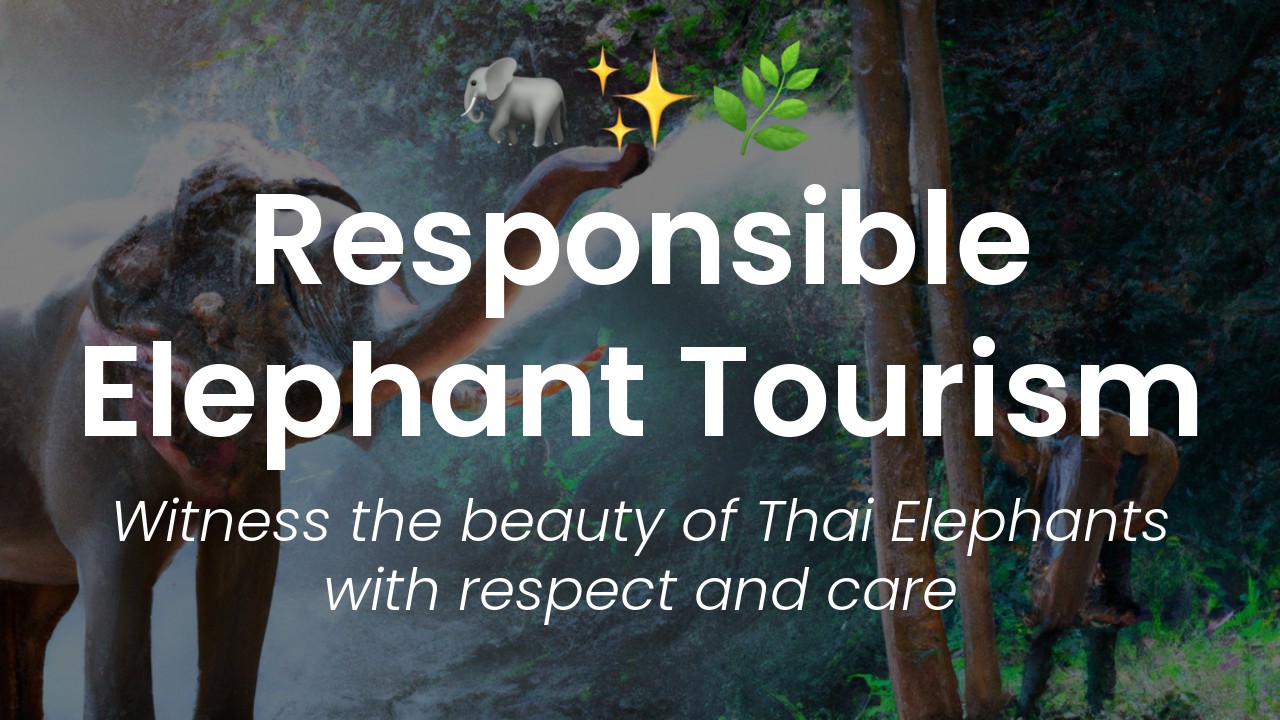Hello, lovely readers! As always, I am excited to share with you another informative and fun blog post. In today's post, we will be talking about one of the most beloved creatures in Thailand – elephants. If you're a lover of elephants or just interested in learning about animal welfare and conservation, you're in for a treat because we will be exploring the best elephant care sanctuaries in Thailand.
However, before we deep dive into the list of recommended elephant care sanctuaries, let's first talk about the importance of responsible elephant tourism. Many tourists visit Thailand to have an up-close experience with these gentle giants, but sadly, not all of them realize that some elephant experiences may be unethical and harmful towards the animals. Riding on elephants' backs, watching them perform tricks, and taking pictures with them are actually activities that cause significant stress and harm to these magnificent animals.
Thankfully, there are more and more elephant sanctuaries in Thailand that provide ethical elephant tours and care for elephants that have previously faced abuse in the tourism industry. These sanctuaries give visitors the opportunity to spend time with elephants in a responsible way, where tourists can learn about elephant care and conservation while observing the animals in a peaceful and natural environment. So, without further ado, let's get started with our list of Thailand's Best Elephant Care Sanctuaries.
Elephant Nature Park
Elephant Nature Park is one of the most well-known and respected elephant sanctuaries in all of Thailand. Located in Chiang Mai, this sanctuary is run by the legendary Lek Chailert, who has long been an advocate for the humane treatment of elephants in Thailand and beyond.
At Elephant Nature Park, visitors have the opportunity to interact with elephants in a truly special way. Unlike many other tourist experiences that force elephants to perform unnatural tricks or carry tourists on their backs, Elephant Nature Park is all about allowing elephants to be elephants.
Visitors can watch elephants roam freely and, if they choose, even help feed and bathe them in the river. Elephant Nature Park is also home to other animals, such as dogs, cats, and water buffalo, which adds to the unique atmosphere of the sanctuary.
Boon Lott's Elephant Sanctuary
Boon Lott's Elephant Sanctuary, or BLES, is named after Boon Lott, a young elephant who passed away in 2009. The sanctuary was founded by Katherine Connor, who was Boon Lott's caretaker at the time of his passing.
BLES is located in Sukhothai and is dedicated to providing a safe and nurturing environment for elephants who have been abused or neglected in the past. The sanctuary is not open to the public on a daily basis, but visitors can sign up for volunteer programs to help with the daily care of the elephants.
At BLES, visitors can witness elephants living in a natural environment and watch them interact with one another. The sanctuary also emphasizes the importance of education and sustainability in elephant conservation efforts.
Elephant Hills
Elephant Hills is a unique elephant camp located in Khao Sok National Park. This camp offers visitors the opportunity to stay in luxury tents while also interacting with elephants in a responsible and sustainable way.
Elephant Hills offers a variety of programs for visitors, including a full-day elephant experience where visitors can feed, bathe, and even trek alongside elephants in their natural habitat. The camp also offers jungle expeditions and canoe trips, allowing visitors to fully immerse themselves in the natural beauty of the region.
What sets Elephant Hills apart from other elephant experiences is their commitment to sustainability. The camp uses solar power and rainwater harvesting systems to reduce their environmental impact, and they also work with local communities to support responsible ecotourism in the area.
Wildlife Friends Foundation Thailand
Wildlife Friends Foundation Thailand, or WFFT, is not strictly an elephant sanctuary, but it is one of the most important animal welfare organizations in Thailand. The foundation is based in Petchaburi and provides a home for not only elephants, but also bears, primates, and other animals who have been rescued from the illegal wildlife trade.
At WFFT, visitors can take a tour of the facility and learn about the foundation's work in animal rescue and rehabilitation. Guests can also interact with elephants and other animals who have been rescued and are now living out their lives in a safe and loving environment.
In addition to animal rescue and rehabilitation, WFFT is also involved in education and outreach programs to promote responsible tourism and animal welfare in Thailand.
Friends of the Asian Elephant
Friends of the Asian Elephant is the first elephant hospital in Thailand and has been providing medical care to elephants since 1993. Located in Lampang, the hospital cares for elephants who have been injured or abused, and also works to promote elephant welfare on a larger scale.
Visitors to the hospital can watch veterinarians and volunteers caring for the elephants, and can also participate in programs to help with the hospital's daily operations. Friends of the Asian Elephant is a wonderful place to learn about the challenges facing elephants in Thailand and the work being done to address those challenges.
Surin Project
The Surin Project is a unique elephant experience located in the province of Surin. This project is run by the Save Elephant Foundation and focuses on providing a sustainable source of income for the local community through responsible elephant tourism.
Visitors to the Surin Project can interact with elephants in a variety of ways, including feeding them and watching them perform natural behaviors in their natural habitat. The project also emphasizes the importance of education and community involvement in elephant conservation efforts.
What sets the Surin Project apart from other elephant experiences is their commitment to sustainability and community empowerment. The project works closely with local communities to promote responsible ecotourism and support sustainable economic development in the region.
